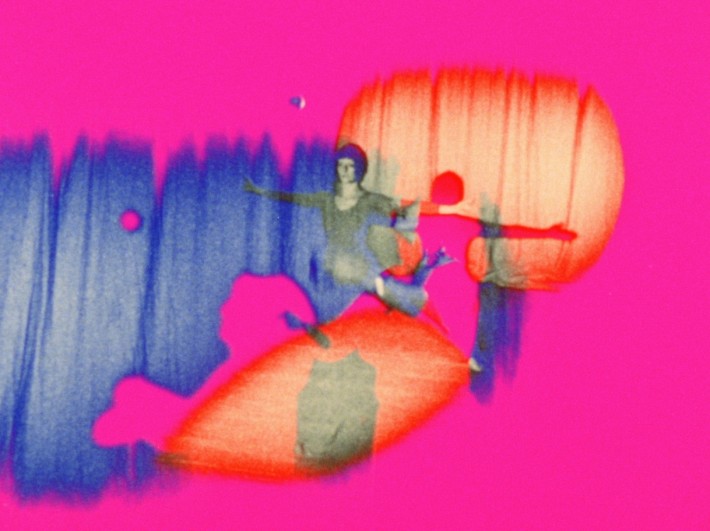The Riddles of the Sphinx
The Riddles of the Sphinx (1977/2013). GB. 2013. DVD. BFI home video. 92 minutes + 115 minutes extras. £15.99
 About the reviewer: Dr Patti Gaal-Holmes is an artist/filmmaker and historian. Her cross-disciplinary practice includes working with moving image (celluloid and digital), photography, drawing, artists’ books and performance. She is Reviews Editor for the Intellect journal, Transnational Cinemas, and completed a doctoral thesis on A History of 1970s British Experimental Film, which is the subject of her forthcoming publication from Palgrave Macmillan in 2015.
About the reviewer: Dr Patti Gaal-Holmes is an artist/filmmaker and historian. Her cross-disciplinary practice includes working with moving image (celluloid and digital), photography, drawing, artists’ books and performance. She is Reviews Editor for the Intellect journal, Transnational Cinemas, and completed a doctoral thesis on A History of 1970s British Experimental Film, which is the subject of her forthcoming publication from Palgrave Macmillan in 2015.
The release of the BFI’s High Definition DVD, The Riddles of the Sphinx, is a welcome contribution to the field of historical film texts, not only for committed enthusiasts and researchers of formally experimental 1970s counter cinema, but also for scholars and filmmakers new to this material. Its value as an educational tool for staff and students alike is realised not only through the newly mastered film, but also in the Special Features presented on the DVD. These include Laura Mulvey and Winfried Pauleit’s feature-length optional audio commentary, Laura Mulvey in Conversation, the earlier film by the directorial duo, Penthisilea: Queen of the Amazons (1974), and an illustrated booklet with a 1977 film review and newly commissioned essays.

The Riddles of the Sphinx uses the Oedipus myth to frame the film’s narrative, centring on a mother’s (Louise) close relationship with her young child, as she finds a sense of separation and independence from her daughter. The Freudian usage of the Oedipus myth, introduced to Mulvey through a 1970s women’s reading group (The History Group), follows the child’s transitional phase of dependence from the imaginary maternal relationship to the symbolic paternal one.[1] In the film the mother’s loving, but sometimes smothering, closeness with her child impacts on the parental relationship, leading to the father’s departure from the family home. The ensuing situation results in Louise taking up work as a switchboard operator, placing her daughter in a nursery, and getting involved in trying to resolve effective childcare at her place of work.

 Learning on Screen
Learning on Screen